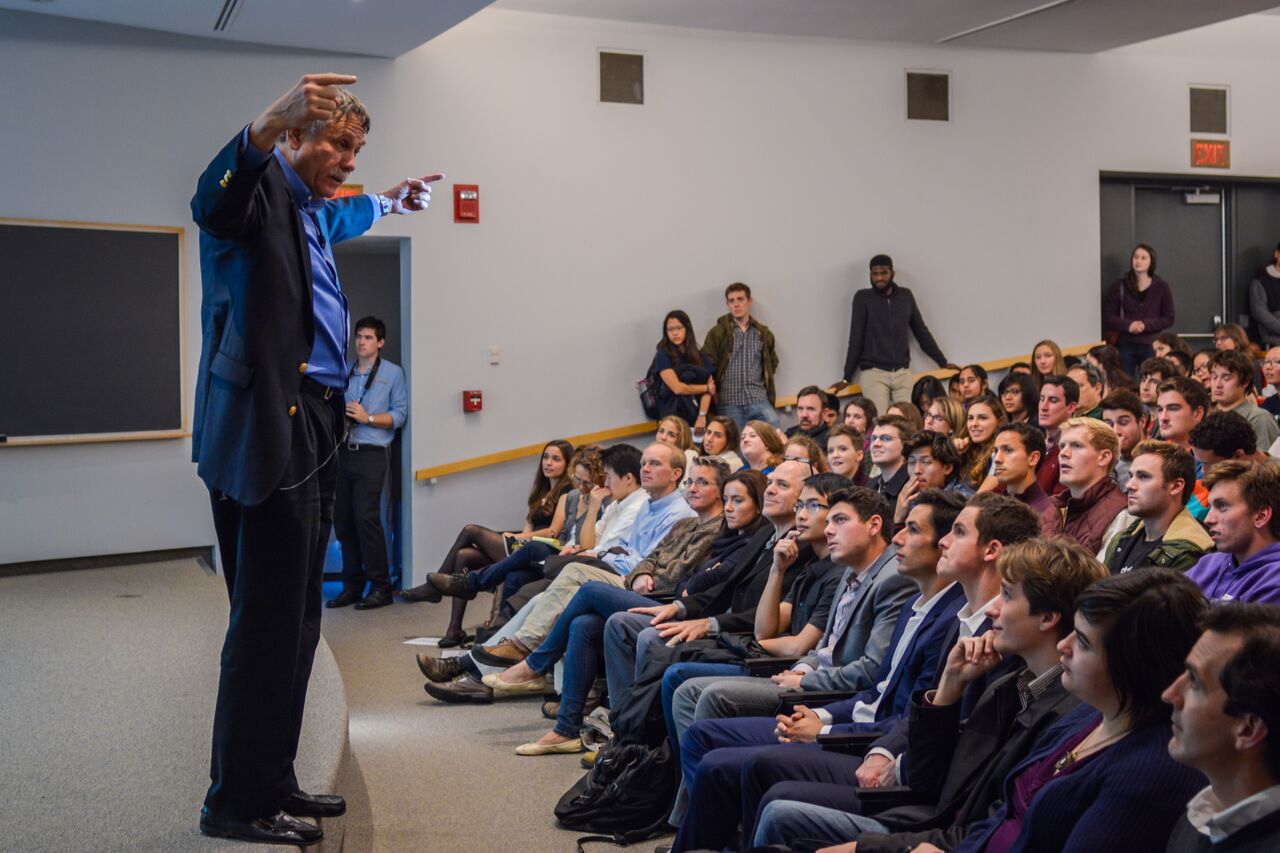

Eric Lander, who helped lead the Human Genome Project and author the earliest publication of the sequence of the human genome, spoke to students in Stirn Auditorium on Nov. 9. Lander is a biology professor at MIT and the founding director of the Broad Institute of MIT and Harvard.
Biology professor David Ratner organized and introduced the talk, which was titled “Secrets of the Human Genome.”
“I cannot imagine what biology would be like if not for the ocean of genomic information that has been obtained in the last 15 years,” Ratner said. “It has transformed biological research.”
Lander opened the talk with the history of scientific understanding of genomics, beginning with Gregor Mendel’s genetic experiments with peas and moving on to the development of DNA sequencing technologies in the 1970s.
“After recognition of DNA and learning how to sequence it, we were still lacking the ability to find a specific gene of interest,” Lander said. “We wanted to be able to take any disease and find the genes that might lead to it. In the 1980s, people really began to wonder, could we map genes without knowing in advance what we were looking for?”
He and a team of researchers at the Broad Institute, in collaboration with labs around the world, began conducting research with the goal of mapping the human genome and creating a universally accessible library of genomic information.
“This project required a complete re-imagining of how the biology community could work together,” Lander said. “Sixteen labs in six different countries worked on this project, and every night we would share our findings.”
Throughout the project, which ran from 1990 to 2003, Lander and his team encountered various legal issues that arose with the mapping of the genome, including corporate attempts to patent genes or to buy the rights to the information in the genome. Lander, a supporter of open access to scientific discoveries, advocated for the genome to remain in the public domain.
“Imagine if all of this information — on the genes that might cause breast cancer or lead to certain cancers — was behind the paywall,” Lander said. “There are reasons we build public goods, and the human genome is a public good.”
According to Lander, the genome project has allowed the scientific community to better understand pervasive and common human illnesses. Three of his colleagues discovered that the expression of a certain gene which marks brain synapses for destruction, correlated with the emergence of schizophrenia.
“While we do not have anything now that can counteract this destruction, the genome gives us a vast amount of information that may let us discover something that can do just that,” Lander said. “This is the power of knowledge.”
Lander said he hopes that knowledge about the genome can be used to decrease the prevalence of cancer and to create more effective treatments. “In the long run, we will win this game, because the probability that cancer will be able to mutate or make a pincer move will be greatly, greatly reduced if we have drugs that address the right genes,” he said.
At the end of his talk, Lander emphasized the role of the human genome project in shaping modern biology. “Those of you who will work in biology are coming into one of the most interesting time that there has ever been,” he said. “And those of you who don’t even touch biology will be impacted by the human genome in many different ways.”